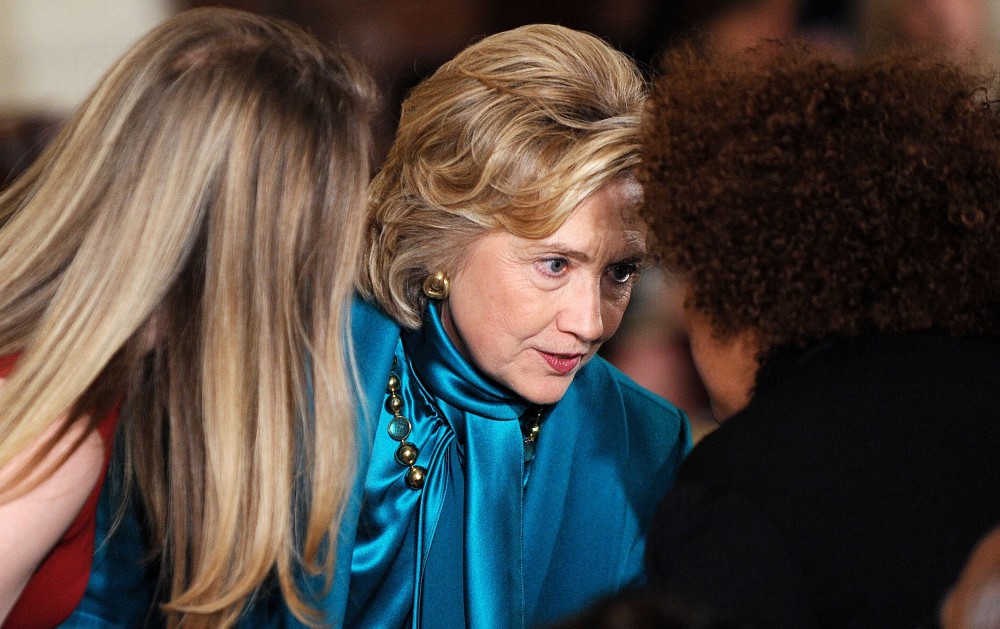By Anita Kumar
McClatchy Washington Bureau.
SANTA CLARA, Calif.
When thousands of women gathered recently to hear Hillary Clinton talk about producing more female leaders in this country, McClatchy decided to turn the tables.
We asked five female executives what advice they’d give Clinton, or any woman, on running to be the nation’s CEO.
Each woman also spoke at different times to the conference, and each had had similar work experiences: being the only woman in a roomful of men, belittled with nicknames such as “sweet pea,” asked whether they were going to get married or have children, and just generally judged differently from men.
Here’s what they said:
More than a woman
A female candidate, just like a business leader, needs to prove she can talk about more than just issues important to women and appeal to more than just women. “I think all leaders do not want to be defined by one particular aspect, don’t want to be defined as the female CEO,” said Marlene Williamson, chief executive officer of Watermark, a group of executive women in the San Francisco Bay Area that organized the conference. “As a leader running for political office, you don’t want to be defined as a woman just dealing with women’s issues. You are much broader than that, and you need to address all your constituencies.”
It’s OK to be a mom
“Sometimes women get advice that they have to be like a man or look like a man,” said Jami McKeon, chairwoman of the global law firm Morgan, Lewis & Bockius. When she started, co-workers warned her not to display photos of her kids or mention them in the office. But, she said, she knew that wouldn’t work for her because that isn’t who she is. So she put up pictures. “You have to be yourself. … Trying to be sterner than you are or funnier than you are or warmer than you are or colder than you are or tougher or whatever it is … it’s not going to work.”
Focus on what women do better
“There are still areas that women are indeed stronger at that we ought to leverage in business,” said Shellye Archambeau, CEO of MetricStream, a software company. “The whole concept that we ought to act like a man instead of acting like a woman, I think, is ridiculous. We are who we are, so let’s leverage strengths we bring.”
So what are they?
In part because of how girls are raised in this country, women are more willing to listen, be inclusive and compromise, she said.
“All of those are very helpful skills when you are trying to find common ground, bring together, find what’s at the root,” she said. “We ought to start talking about how women aren’t men but also talk about some of the skills and strengths women bring that are actually very helpful in a global, growing economy.”
Don’t be afraid
Ann Barlow, partner and president of the West Coast offices of Peppercomm, a public relations agency, said she gave herself a message every day, once a day: Don’t be afraid. “We spend a lot of time as women being afraid: afraid of failure, how are they going to think about me, what are they going to say, afraid we’re going to screw it up,” Barlow said. “My God, it’s so exhausting being afraid, so I just remind myself once a day to stop being afraid and just get on with it. … I’m all the time doing new things and scaring the crap out of myself. There’s so many things that could happen, yes, but my point is stop being afraid and get through it.”
The vision thing
“Successful presidential candidates are able to describe and create a picture of the future in the minds of voters,” said Jill Abramson, the first female executive editor of The New York Times and a veteran political reporter. “President Obama did that very successfully in 2008. In his speeches, he conveyed the future he hoped to create for this country. … I think she struggled with that a bit and, you know, I’ll be interested to see if she succeeds in doing it this time if she does run.”














































































































































































































































































































































































